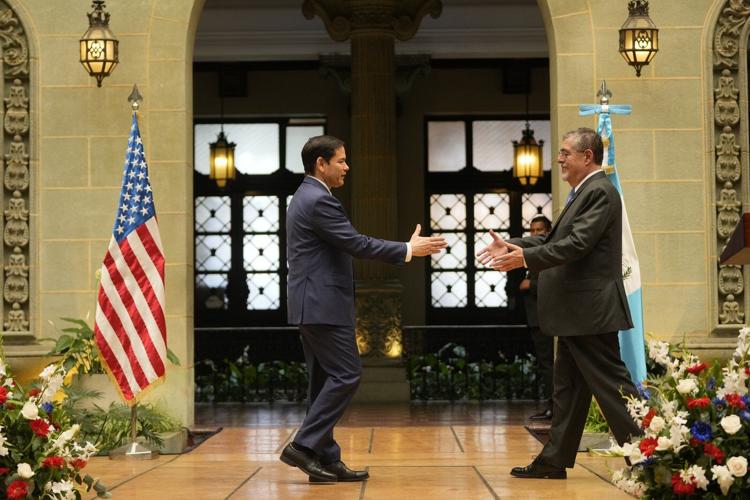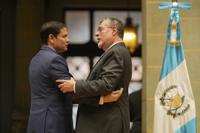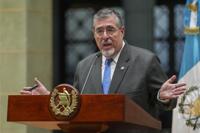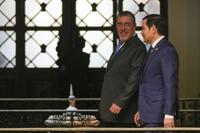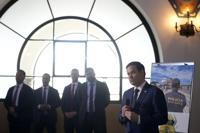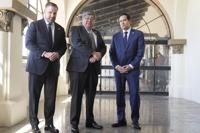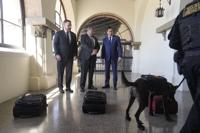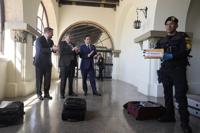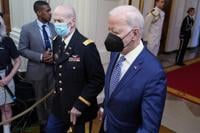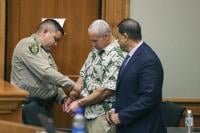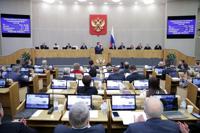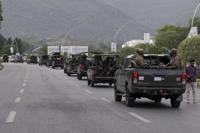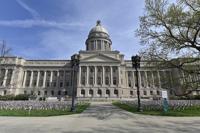GUATEMALA CITY (AP) — Guatemalan President Bernardo Arévalo said Wednesday his country will accept migrants from other countries who are being deported from the United States, the second deportation deal that Secretary of State Marco Rubio has reached during a Central America trip that has been focused mainly on immigration.
Under the agreement announced by Arévalo, the deportees would be returned to their home countries at U.S. expense.
“We have agreed to increase by 40% the number of flights of deportees both of our nationality as well as deportees from other nationalities,” Arévalo said at a news conference with Rubio.
Previously, including under the Biden administration, Guatemala had been accepting on average seven to eight flights of its citizens from the U.S. per week. Under President Donald Trump it's also been one of the countries that have had migrants returned on U.S. military planes.
El Salvador announced a similar but broader agreement on Monday. said his country would accept U.S. deportees of any nationality, including American citizens and legal residents who are imprisoned for violent crimes.
Both Trump and Rubio acknowledged the legal uncertainty of sending Americans to another country for imprisonment.
“I’m just saying if we had a legal right to do it, I would do it in a heartbeat,” Trump told reporters Tuesday in the Oval Office. “I don’t know if we do or not, we’re looking at that right now.”
Rubio called it a very generous offer but said there were “obviously legalities involved. We have a Constitution.”
Immigration, a Trump administration priority, has been the as America’s top diplomat, a five-country tour spanning Panama, El Salvador, Costa Rica, Guatemala and the Dominican Republic.
The agreements with El Salvador and Guatemala potentially help the Trump administration address what has always been a key sticking point in immigration enforcement since not everyone in the U.S. illegally can be easily sent back home.
Venezuela, for example, has been a major source of migrants coming to the U.S. in recent years, but rarely can the U.S. deport Venezuelans back to their home country. But the U.S. already has a robust network set up to send people to several Central American countries.
Guatemala will expand its capacity to receive not just Guatemalans, but also migrants from other countries who will then be repatriated to their home countries. The details still need to be worked out.
“However, the permanent answer to immigration is to bring development so that no one has to leave the country,” Arévalo said. To that end, a high-level Guatemalan delegation, including from the private sector, will travel to Washington in the coming weeks.
Arévalo also announced the formation of a new border security force that will patrol Guatemala’s borders with Honduras and El Salvador. The force will be made up of police and soldiers and will combat transnational crime of all kinds, he said.
Rubio's trip has been dogged by the administration's dismantling of the U.S. Agency for International Development, including a late Tuesday order abruptly pulling almost all agency staffers .
After the news conference with Guatemala's president, Rubio headed directly to the U.S. Embassy, where staffers and their families who were unsure of their futures gathered to hear from their new boss.
The meet-and-greet event was closed to the press, as was an earlier similar event in El Salvador. Both Guatemala and El Salvador have significant USAID missions. In Panama on Sunday before the shut down announcement, Rubio’s embassy event had been open to journalists.
From there Rubio wrapped up his Guatemala stop by visiting a local migration facility near an air force base where deportees are processed for integration back into their home communities. Under the measures announced Wednesday by Guatemala’s president, the number of deportees is expected to rise by as much as 40%. The program has been supported by the U.S. State Department and Department of Homeland Security.
Rubio also got a briefing on Guatemala’s counternarcotics efforts, including the interception of at least four shipments of fentanyl precursors since late November totaling 127.5 kilograms (280 pounds), enough to produce more than 114 million doses of the drug.
Rubio, who has offered exemptions to Trump’s sweeping freeze on foreign assistance, has signed waivers to allow funding for both programs to continue, officials said.
“This is an example of foreign aid that’s in our national interest. That’s why I’ve issued a waiver for these programs. That’s why these programs are coming back online. And they will be functioning because it’s a way of showing to the American people this is the kind of foreign aid that’s aligned with our foreign policy, with our national interest," Rubio said.
Rubio also spoke Wednesday with Mexican Foreign Secretary Juan Ramón de la Fuente to discuss ways to secure the U.S.-Mexico border, fight fentanyl and transnational criminal organizations and end illegal immigration, according to a State Department statement.
__
Associated Press reporters Rebecca Santana in Washington, Sonia Pérez D. in Guatemala City, and Adriana Gomez Licon in in Fort Lauderdale, Fla., contributed to this report.

